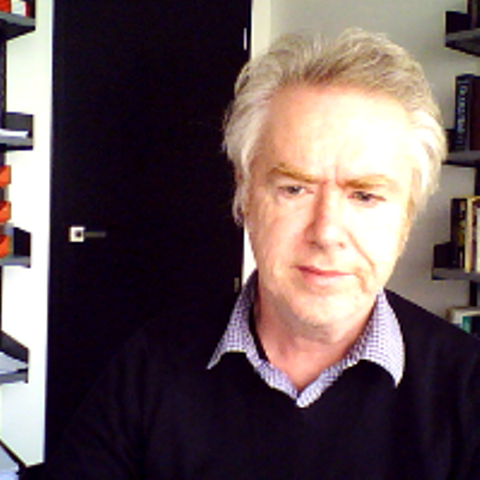Senior lecturer in Media Studies with a background in German critical theory and French poststructuralism. Biopolitical Media: Catastrophe, Immunity and Bare Life (Routledge 2016) is my second book. The aim of this book is to develop a synthesis of the theories of Foucault, Agamben and Esposito in the context of modern visual media. I discuss early photography and film (Bertillon, Galton, Charcot, Marey) in terms of the attempt to observe, monitor, record, archive and analyse biological life. These pioneers of the modern media image focused on physiognomy, gesture and movement in both humans and animals and interpreted this visual information in accord with discourses about criminality, pathology , race and species. I show how these biopolitical conceptions of the image were extended by the Nazi propaganda apparatus and the production of bare life: both in the celebration of nude body of the Aryan master race and the enslavement and destruction of “subhumans.” The book then explains how the visual documentation of the death camps played its role in the establishment of post war discourses about human rights and crimes against humanity, changing the terms of biopolitics to include the “trauma” suffered by specific groups. I argue that the “shock” of the Holocaust needs to be understood with respect to the visual encoding of race and the distinction between human and non-human life first developed in the European colonies. The post-9/11 ‘war on terror’ has shown how the humanist interpretation of historical trauma has tended to obscure the ongoing use of visual media to define which populations enjoy fully human status. The increasing visibility of torture, atrocity and execution through the Internet has shown that “traumatic” images perform a range of functions in biopolitical media, assigning catastrophic destruction to some populations while maintaining immunity for others. The overall argument of the book is supported by detailed analysis of case studies including the Nazi documentary The Eternal Jew, Alain Resnais’s Night and Fog, Robert Lifton’s documentary about Hirsohima, To Die, To Live, and decapitation videos produced by Islamic State.
My ongoing critical engagement with trauma extends the concerns of my first book Trauma and Media: Theories, Histories, Images (Routledge 2010). My current research is on the use of media to induce psychological disturbance and on the concept of natural history in the writings of Benjamin, Sebald and others


